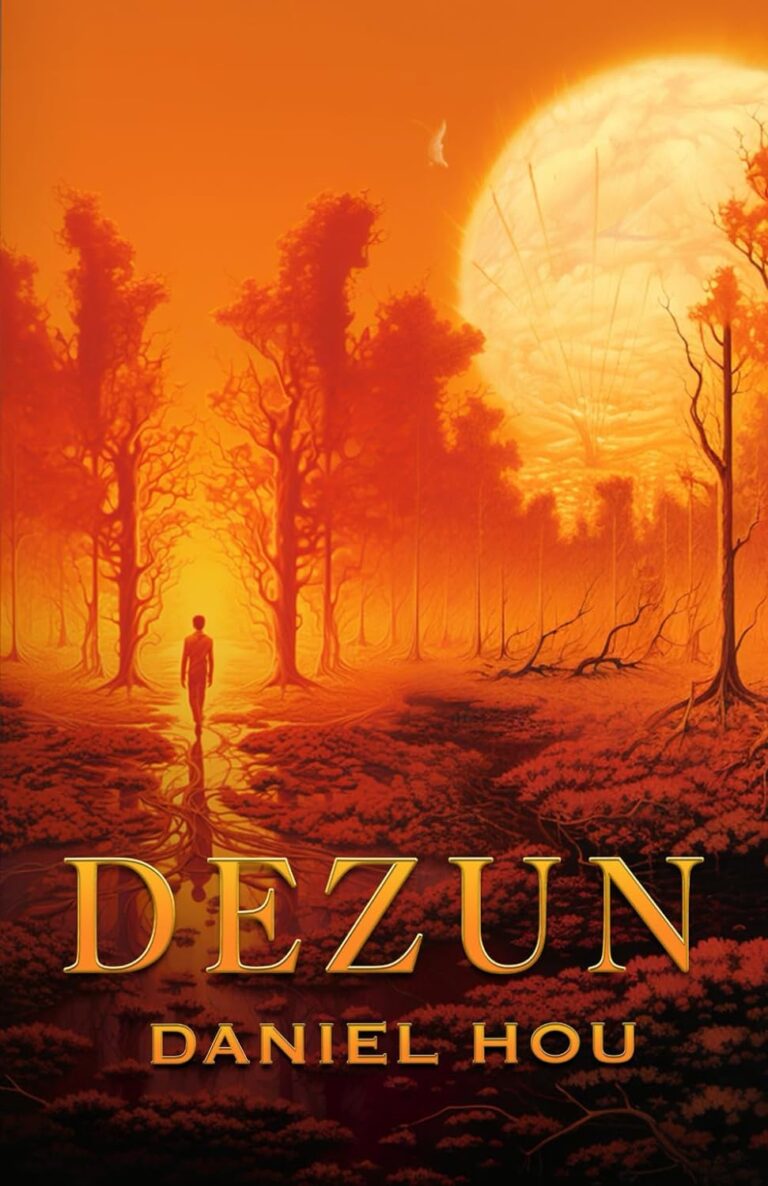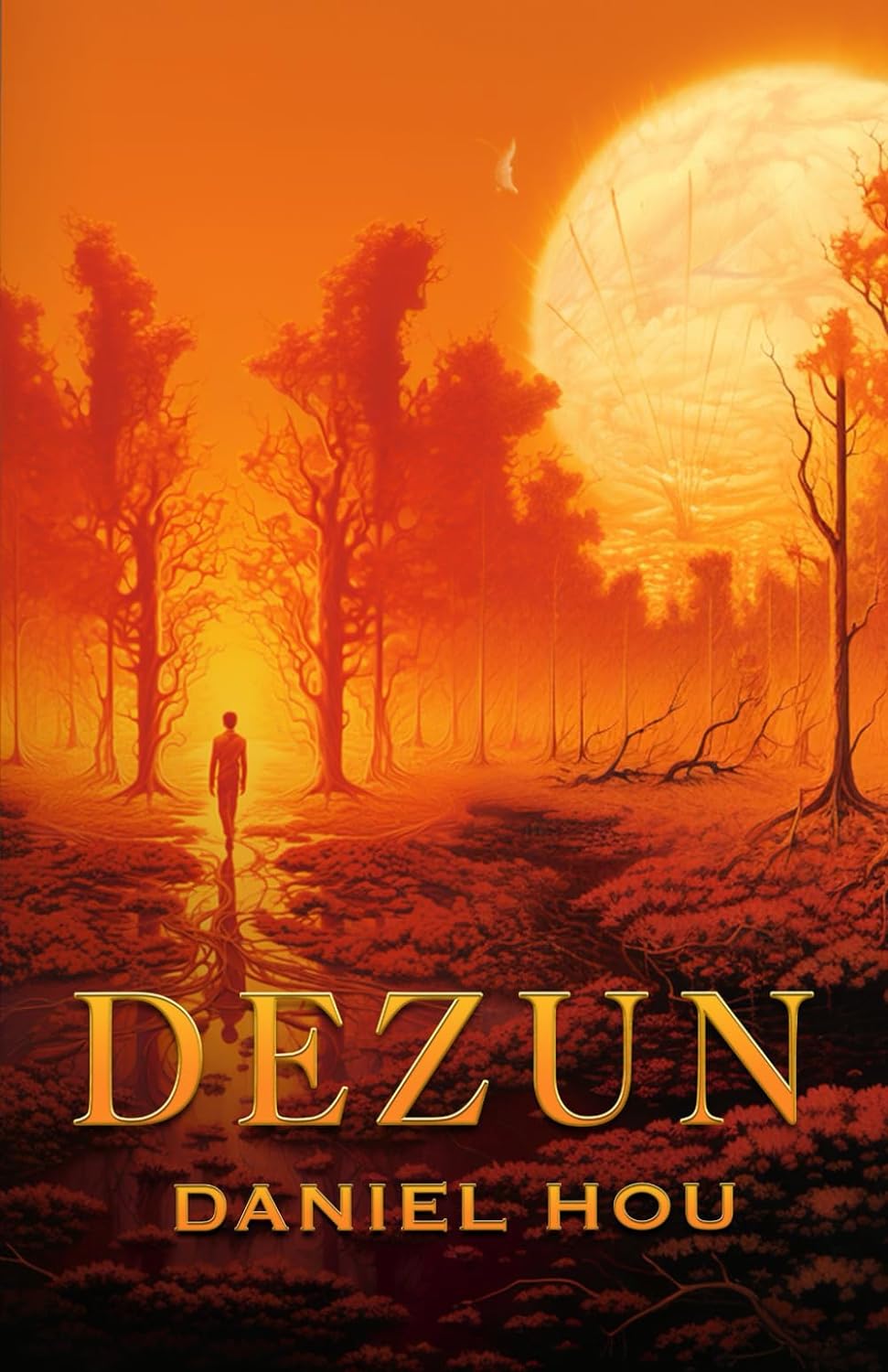The planet Stolis requires immense quantities of Sol to fuel the artificial sun that gives it life, and its populace sends troops to distant Dezun in search of it. The war is quick and decisive, with the last remaining resistance scattered to the wilderness. One rebel, Inaal, watches in horror as her brother sacrifices himself to strike a blow and becomes a legendary fighter. She then suffers a terrible injury and gains a son with tell-tale Stolisian eyes. A Stolis-friendly government is set up, and a new security force, the Povascha, is formed—accepting natives into its ranks. An unsteady peace holds as Stolis rips Sol from the planet.
Twenty-six years later, Inaal’s son Lyas is shocked to learn that his mother is known as The Gerask, a key figure in the failed uprising from decades before. A group funded by a local official attempts to recruit Inaal into a fresh effort to throw off the Stolisian yoke. The local government has grown corrupt and lazy, and there are vulnerabilities to exploit. But a massive, heretofore-unknown deposit of Sol has been discovered on the planet, and this attracts the attention of Stolis’s Stoker himself, Celos.
Daniel Hou writes DEZUN with a lithe, poetic voice that matches his epic material well. Take this sentence: “Only the eerie howls of wind, streaming gusts that built from low aching growls into shrieking whistles as they rushed through the shadowy silhouettes of black tree branches, scouring crisp leaves from cold bark.” There is the occasional tendency to overwrite, using ten words where five would do, but this is a minor complaint. Hou sketches the characters with a fine eye for detail, creating believable people and placing them in an epic scenario. Some respond with bravery, others with self-interest, but it’s consistently interesting and compelling stuff. The story builds on several familiar tropes—the overpowering empire, the scrappy rebels, a “getting the band back together” structure—but they’re used effectively enough.
There are many hints that the fictional universe of DEZUN is a well-imagined and well-designed one, but hints are all the reader gets. The entire set-up behind Stolis and its conquest of the planet is covered in little more than one page at the very beginning of the book (which also lazily doubles as the marketing copy), leaving it to the reader to imagine the details of this society and economy. There are words from fictional languages, references to events, and other details that are never explored throughout. This can be an effective technique to create a sense of lived-in familiarity for the characters, but the complete lack of interest in giving the reader any sort of context leaves the characters’ decisions feeling empty. It also robs the climax of the story—which is somewhat shocking and unexpected—of real impact. So little time is spent on the people and cultures of both planets that it’s very difficult to care about the struggles to control Dezun.
Also, several characters aren’t introduced until halfway through the book. This isn’t a problem in and of itself, but the reader gets too little of them to understand or care much about their motives or their fates. And there’s a lack of focus to much of the story; the narrative drifts between several different characters, and none of them emerges as the lead, which takes some propulsion away from a story that should narrow down to a tense action sequence as it builds to that climax.
DEZUN shows a lot of promise; there’s clearly a lot of thought put into the universe and societies that Hou has imagined. Not enough makes it to the page, however—leaving it feeling like a well-written cipher of a story: entertaining empty calories.
Well-written and implying a deeply-imagined universe, Daniel Hou’s DEZUN leaves too much off the page and never finds focus for its familiar plot.
~Jeff Somers for IndieReader


